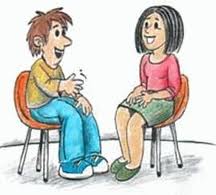Have you ever listened to yourself talk and discovered you overuse certain expressions that don’t really help in getting your message across? I sure have. Today I want to share five expressions we must stop using when we speak if we are to make our communication more effective. 
One of the keys to learning any new language is to master the most common words used by native speakers. English being my second language I regularly find myself in situations where my accent is totally different from the native English speakers’ accents. Having to do quite a few public speaking, I have learned to accept my accent as an asset rather than a liability. Even though I am not trying to change my accent, more and more you will catch me using some expressions that we should all drop from our vocabulary.
With that said, the popular expression “When in Rome do what Romans do” is valid and I live by it as much as I can. That includes picking up good habits of the country hosting you, as well as not so good habits. Listening to myself speak and consciously resisting negative influences to the way I communicate verbally, I have identified the five most common expressions we must avoid using when we speak. These expressions are part of the daily vocabulary used by Americans in professional and informal settings. Learning to speak without the following expressions will make you a better communicator.
Here are the expressions:
- It’s like
Examples are: It’s like he does not care about what I feel. It’s like you just want to make money out of this. It’s like nobody cares about how I feel. Instead, replace “It’s like” with “Apparently” or “It gives the impression”. True, it takes more time but in the long term you will feel better when you speak like that and you get complement on how well you use the language.
- You guys
How about the gals, are they included? Popular examples are: How are you guys doing today? You guys having fun yet? I will see you guys tomorrow. You guys are amazing. Instead, replace “you guys” with “you.” The meaning is the same and it makes you sound less casual. Regardless of whether you are speaking with friends at the beach or with colleagues in the office, you will sound more refined when you drop “guys” and simply use “you.”
- You know
No I don’t. Very popular examples: You know what I mean? You shouldn’t be doing this you know. You know I like it when you do things for me. Instead, replace “you know” with nothing. Just don’t say it. Unless it is part of a (sometimes rhetorical) question. Example: You know I do this because I care much for you, don’t you? If “you know” serves you as a pause filler, drop it.
- I think
Any sentence or statement that starts with I think indicates uncertainty. You would probably not believe someone who thinks at the speed he or she speaks. It is expected that we think before we speak. The opposite is almost always guaranteed to cause (sometimes irreparable) damage. Think of two police officers (even one is enough) with their guns drawn on a civilian. If someone shouts “I think he has a gun,” what will most likely happen thereafter will not be pretty.
- Whatever
This is often a problem when you use it by itself in response to a question or a statement. To be honest, the reason why I have this on the list is because I could not think of anything else as I was writing. Then I said out loud: whatever! Chances are if you took time to read through to this item, it means you are an educated reader who seldom uses that expression in his or her verbal communication. Is that true?
If you found the list useful, what other expression do you suggest or recommend people keep out of their vocabulary and oral communication?